
Munlom: Translated as ‘Blessing’, this resort is located in Gyathang. A village in lower Dzongu at an altitude of 5100 feet. The property is constructed of materials all locally sourced with a minimal environmental footprint. Careful measures were taken to ensure the utilization of local human resource and traditional building techniques many of which are largely being forgotten. Dzongu is the perfect destination for the nature-loving traveler, the spiritual seeker, the cultural enthusiast, and honeymooners. Traveler can stay at any of the villages in Dzongu. The area is divided into upper Dzongu (Tingsvong and Kussong villages are here) and lower Dzongu (Passingdong and Lingdong villages are here). Cast your eyes around and you are sure to catch sight of at least five natural waterfalls.
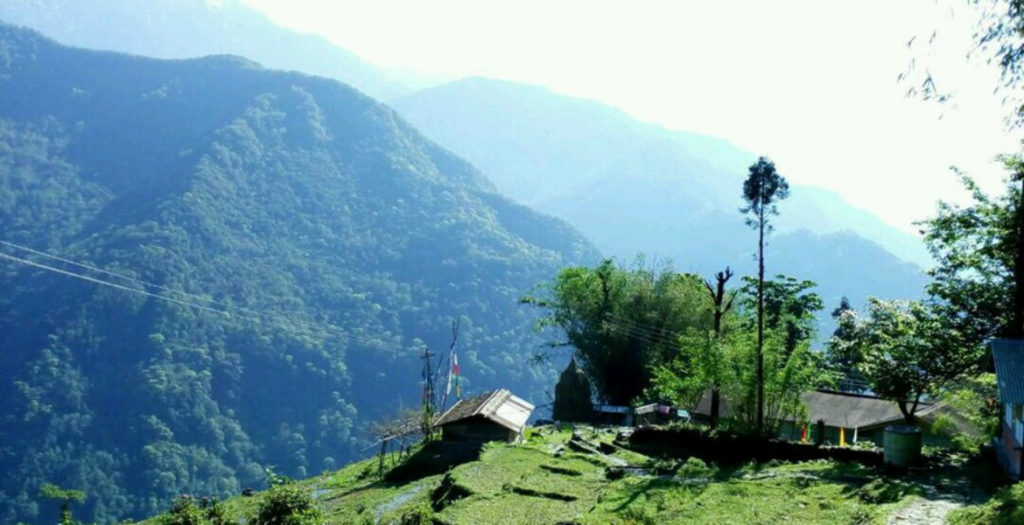
Dzongu: Dzongu, the special Lepcha reserve, lies in the North District of Sikkim amidst deep valleys and lush forests of the Himalayas. An almost virgin territory with a scanty population of Sikkim’s native inhabitants, it is a beautiful land of dense jungle groves and pristine glacial streams. There are numerous waterfalls cascading down steep cliffs and natural hot springs bubbling at the various creeks and caves. The area is remote yet easily accessed from the capital city of Gangtok. Elevation ranges from1400 feet to almost 20000 feet higher up, and this has given way to an amazing diversity of plants and wildlife. It borders the Khangchendzonga National Park and Biosphere Reserve offering panoramic views of Mount Khangchendzonga (8585 meters), the third-highest summit in the world and the protective deity of Sikkim.
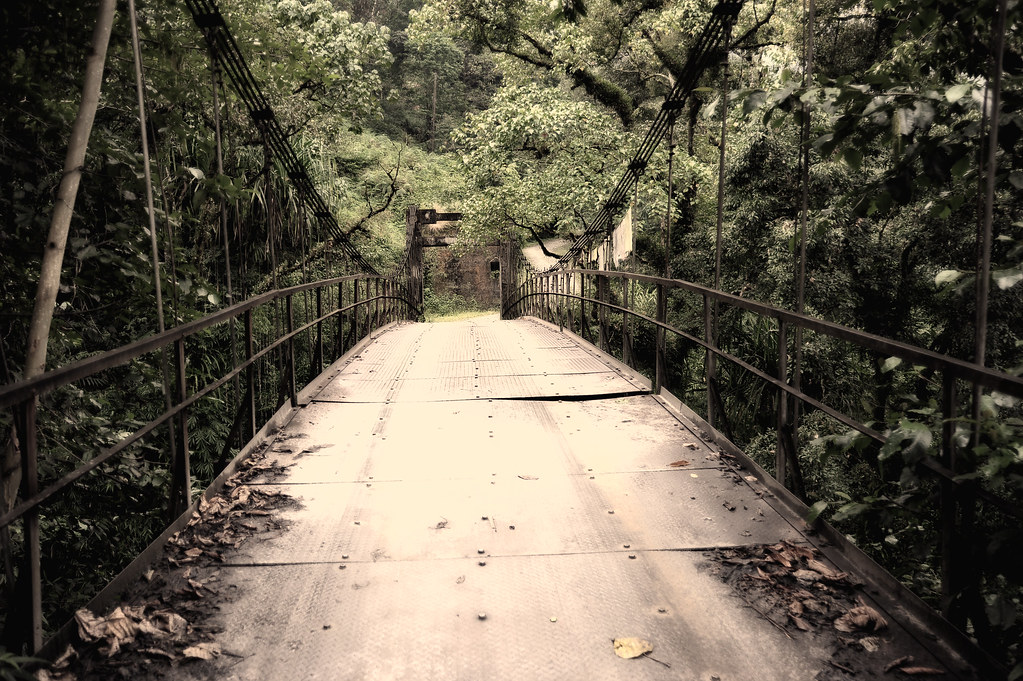
Mayal Lyang Homestay, Passingdang, Upper Dzongu, Sikkim (30 minutes from Mangan Bazaar), The hosts, Gyatso, and his wife, are very nice people and have great tales to tell about the Lepchas and Dzongu in general. The village is set amongst dense vegetation, on the side of a hill, with the Rongyung Chu River flowing at the hill’s base. This place is far from the tourist hustle bustle and most peaceful. Visit here to stray from the beaten path. The whole area is picturesque and untouched.
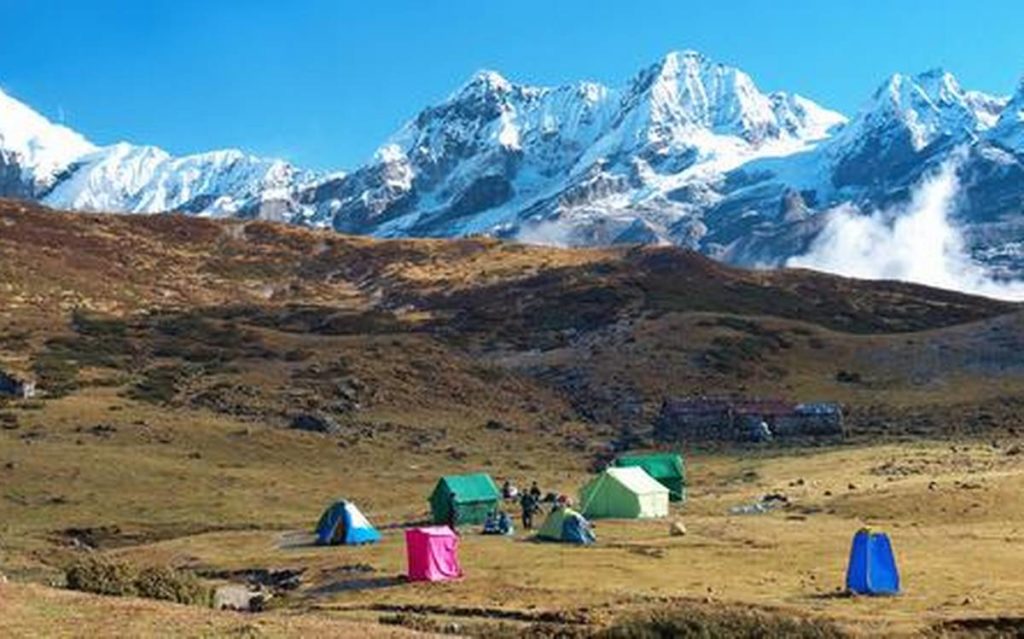
Mayal Malok Lee Homestay (Mayal Malok Lee), Passingdang, Upper Dzongu, Sikkim (30 minutes from Mangan Bazaar), Mayal Malok Lee has neat and clean rooms with very basic amenities. Both attached and non attached toilet rooms are available for stay. The Homestay is run by CD Lapcha, belongs to ethic Lapcha Family. Farm fresh vegetables are cooked for your food. All bathrooms have both hot and cold water facility. No TV in the room, TV can be watched at the lobby up to certain time.
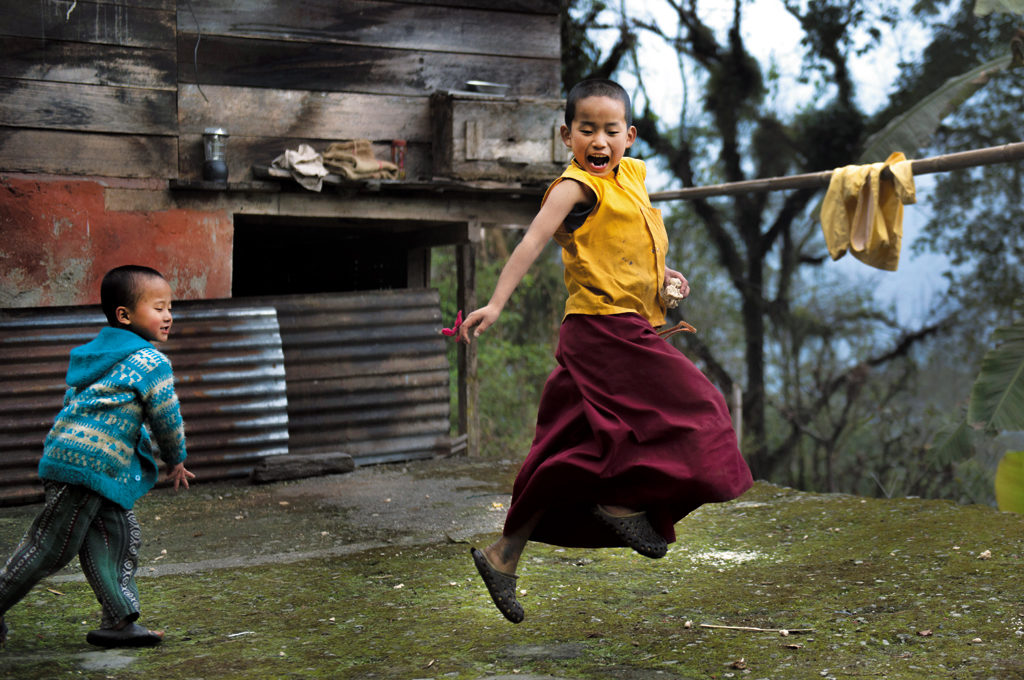
People: Dzongu has been established as an official reserve for the Lepchas. They are the original inhabitants of Sikkim, Dzongu was designated a special reserve for the Lepcha community since the 1960’s when Sikkim was still a kingdom under Chogyal Palden Thondup Namgyal. This is the last bastion of the Lepchas in Sikkim and possibly one of the few places where one could meet the local shamans referred to locally as the ‘Boongthing’ who still practice the ancient animistic rituals. Sadly, this culture is fast disappearing with other more popular religions like Christianity and Buddhism taking over as the dominant religion. Lepchas are shy & simple people who fear ill-reputation. Hence, Dzongu area is very safe in terms of crime.
One may encounter a landslide on the way, in the rainy season. But the sites of the landslides are usually the same every year and are known to the locals.
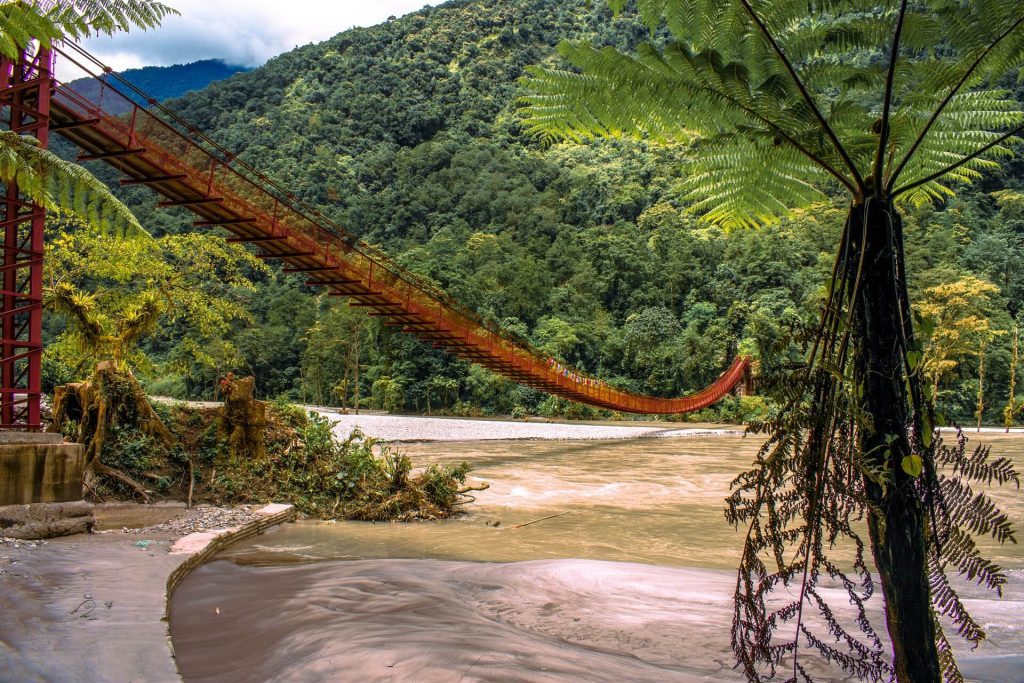
Activities: Dzongu offers the discerning traveler a host of options. Whether it be simply unwinding at the canopy verandah with a cup of local ‘lemon tea’ or hiking through one of the many trails that meander through the forests, one can be assured of an excellent getaway from the humdrum of modern-day existence.
Hike/ Trek/ Backpack: Smal hikes and long treks, both are possible in Dzongu. Both are equally recommended by the people here and me!. The most enjoyable thing about the trekking here is that it is almost a virgin territory. You encounter untouched forests and streams.
Cross Cane Bridges: Lepchas build cane bridges across rivers. They sway with each step you take on it and thundering rivers flow under them. A must try !!
Observe Nature: Watch birds, butterflies, different plants. Understand from the Lepchas how they make use of different plants for medicinal purposes etc. Lots of flowers to be seen too. As many as 5 different species of the Rhododendron are found here.
Fishing / Angling: Angling is possible in the rivers here. The catch may not be too huge, but a little patience bears results. Trout & Mahseer can be caught here. Nice experience.
Watch Cultural Programs: The Lepchas take pride in displaying their traditions and culture. You can watch Lepcha performing their folk songs and dances. This can be arranged by the homestay host.
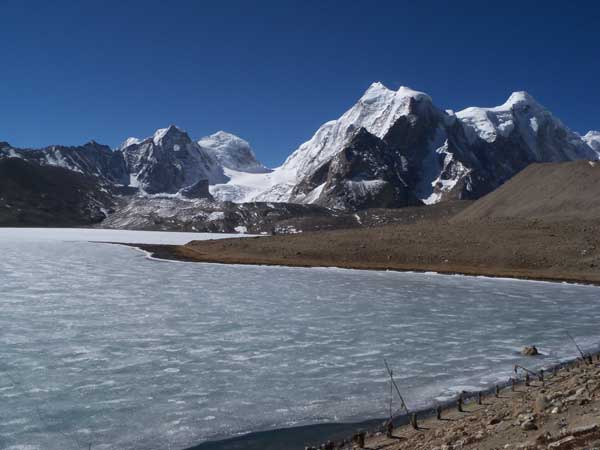
Hikes and Day Walk: connected very well with old footpaths and footbridges, one of the best ways to explore the area is via guided walks. The Lepchas are known well for their indigenous knowledge of the land, hence taking strolls through the woods and villages dotting the landscape, offer visitors an interesting insight into the way of life and nature as it has existed for generations. We provide guests with options on the duration and difficulty of such walks so anyone can partake in the activity. Little cook-outs for tea and snacks are arranged on the way so one can spend a good time outdoors!
Trekking: Dzongu being a newely opened destination, does not see the usual rush in tourist flow, hence even the very old trek routes of ‘Tholung’ and ‘Kishyongla’ are lesser known, yet rank among the most picturesque! These are routes still used today by locals as they hold utmost religious and spiritual significance. Trekking is organized by us in collaboration with locals and fully certified guides. For more details cantact us directly.
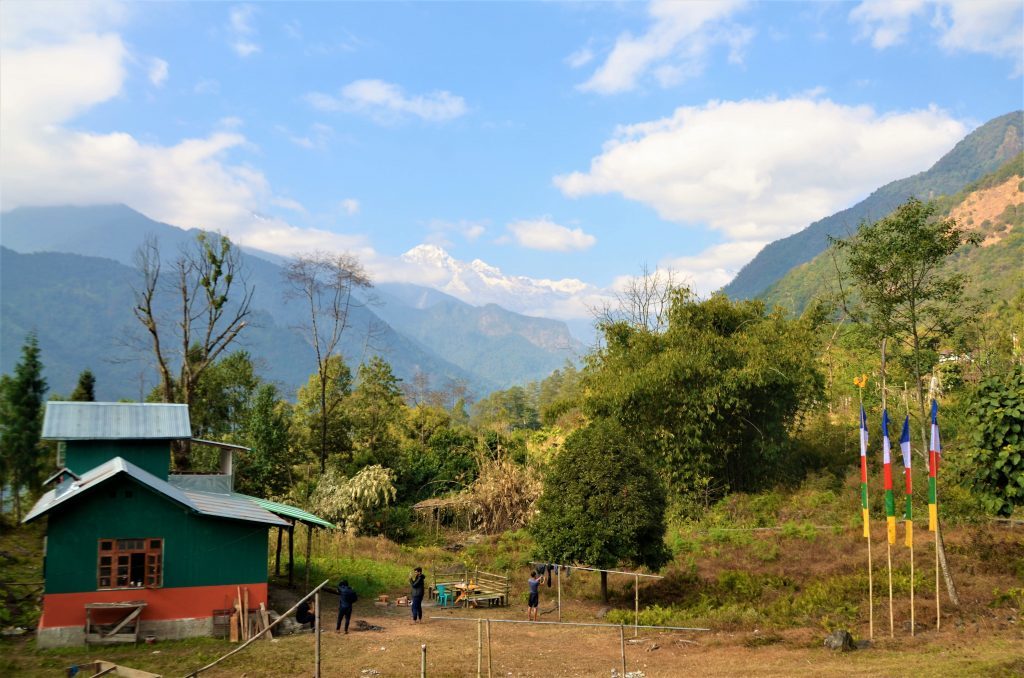
Homestay: Having worked with homestay owners all across Sikkim, we offer the experience of living with families in Dzongu and partaking in daily activities at their farms. Guests are free to interact and learn the indigenous practices that have been passed down over generations in these families. Munlom Nature Resort has tie-ups with such individuals and their families, and we encourage a holistic effort to promote the region for the sustainable tourism industry in the coming future.
Sightseeing: Day tours: Mostly virgin territory, the road connectivity in Dzongu is still to develop further, hence parts of the drives are on gravel which makes travel slower. However, much of sightseeing in Dzongu is at a leisurely pace with picnics by the riverside and visit to the natural sulphur springs a must!
Major Sightseeing: North Suikkim and Gangtok of East Sikkim are the major sightseeing places. They are Lachen, Chopta Valley, Thangu, , Gurudongmar Lake, Lachung, Yumthang Valley, Yumesamdong, and Gangtok
Lingthem: A short but steep hike up from Passingdang village. Great views of Mt. Kangchenjunga and Dzongu Valley.
Hee Gyathang: Is in Lower Dzongu. It has a small lake, considered to be sacred by the Lepchas.
Penton: Reachable after a trek. Quite close to snow-capped mountains.
Tholung Monastery: 20 Kilometeres from Passingdang. Every three years, Tholung treasures are put on display. It has a cane bridge one can try to cross – excellent experience!
Traditional Lepcha House Museum: A model of the Lepcha house built in the traditional style. Houses a museum inside it. Located in Namprikdang, near the confluence of Teesta and Rongyung Chu Rivers. The surrounding area provides great opportunities for Butterfly watching.
Waterfalls: Dzongu is full of waterfalls. They can be seen cascading down from every second hill. Lingzya falls is the best among them. Try a bath here!
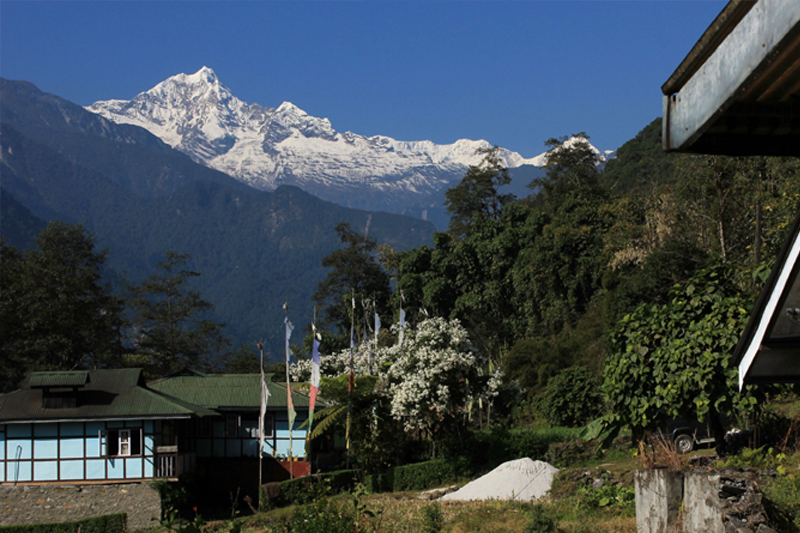
Tingvong & Kusong: Two beautiful villages, a short hike apart.
Keushong: Reach here after backpacking for 03 – 04 days. The most pristine place in Dzongu probably. This place has a very beautiful lake and hills all around it. The valley is covered with flowers in the right season.
Eat Organic: Almost all of the vegetarian food that you get in Dzongu is grown there. Lepcha people do not use any modern fertilizer or pesticide in their farming. Hence everything grown there is Organic. Rice and Large Cardamom are the two main crops grown there. Rice is grown in contour farming at the sides of the hills while cardamom can take root on slopes as well. The weather conditions suit the growth of cardamom. Rice is the staple food there. Wheat is not grown. Lepchas do not use much oil in their cooking and hence the food is either boiled or roasted. But it is tasty none the less! Lepchas prepare non-vegetarian fare as well. These include dishes made of chicken, beef, fish, and pork. Fish is usually caught from the nearby river.
Drink: Chee .. It is the traditional Lepcha drink, brewed from Millets. Government has its own supplies.
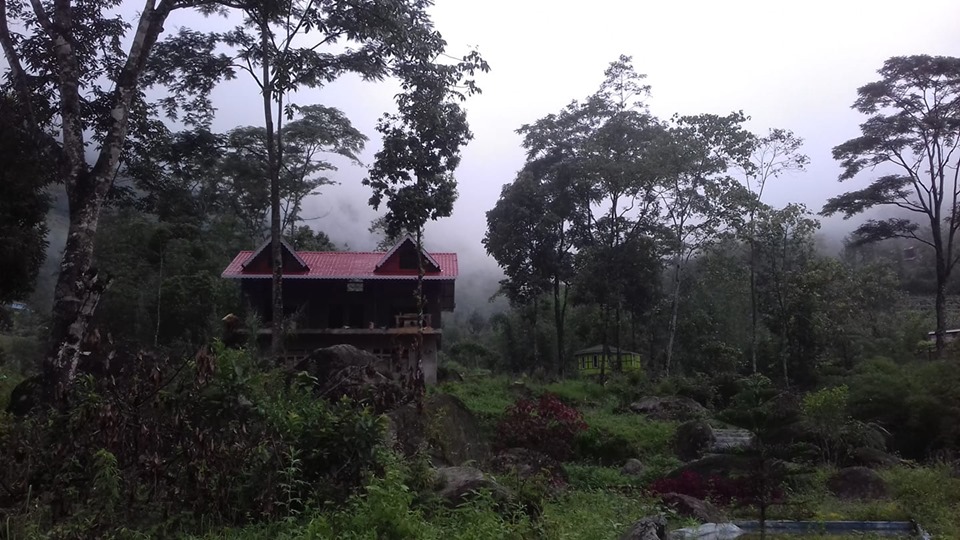
Communication: Dzongu is about 70 kilometers from the state capital, Gangtok. It is easily reachable by road. Permission from Sikkim Government is required to enter Dzongu. The nearest Airport is Pakyong (PYG) 100 kilometers & Bagdogra (IXB) 200 kilometers. Nearest Major Railway Station is New Jalpaiguri Railway Station (NJP) nearly 200 kilometers.
Contact: www.dreamwaydestinations.com & www.visittobengal.com Or Call me at +919733465000 & +919474092500 Or WhatsApp : +918617432205